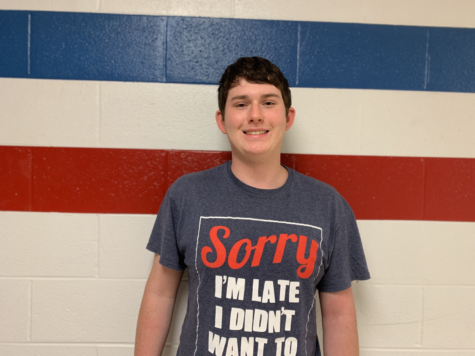Interview of David Parsons part two
March 5, 2021
Chairman Parsons commented that the police associations, including the Illinois Fraternal Order of Police (FOP) asked to have a seat at the table, but were refused this important opportunity. Parsons shared that the FOP and the policing associations urgently requested legislators to “stop this bill from going forward in just a four to five day period, (and to) sit down and talk about things in this bill.” Parsons additionally said, “There are about 80% of things that law enforcement and the people that are pushing this bill can agree on, it’s the other 20% that is really horrible. It just floors me to understand what possessed this bill to become so awful.” In addition, areas of the bill that were altered in attempts to decrease resistance to the legislation, (example: portions of the qualified immunity legislation), are planned to be passed separately next spring. One such example of legislation slated to be passed in the spring is legislation holding an officer personally liable for issues not directly caused by the officer – for example, a swat officer breaks down the door of the wrong house, because of a detective’s error. David Parsons compares this to the nurse giving you a COVID shot. It is not the fault of the nurse if you have an adverse side effect from the vaccine.
According to the FOP Legislative Committee survey data, if HB3653 legislation is passed, at least 20% of police have said they will retire immediately, and masses of police respondents have declared that they will either seek early retirement, or resign immediately and seek other careers. Additionally, the IL FOP data indicated that if HB3653 passes into legislation, it would necessitate placing individuals, who historically/currently would be declared unfit/unqualified to become officers (resulting from depletion of current/prospective police force) into the police force, simply to fill demand. Parsons correlated the similarity of this to the situations occurring in Colorado as a result of the passage of a similar law; example: people who weren’t actually convicted of a criminal act (think plea bargaining, etc.). According to Parsons, prior to the new legislation and its expected effect of exodus from the police force, individuals such as these would have been deemed unacceptable candidates, even for the police academy.
Around the U.S., problematic bail/police reforms are causing similar mass police exodus scenarios alongside significant increases in serious crime. For example :
– New York – 2020: 2,500 police retired citing ill conceived bail reform/police restrictions – double the amount from 2019.
– California – ex:LA has lowest police staffing in a decade vs. immense population increase
– Portland: the number of sworn officers is 158, lowest in 20 years
– Seattle PD force plummeted below 1990 levels; public population increase of 44% since then.
– Cook County – ex: Chicago, where retirement exodus increased by 30% in 2020)
– Minneapolis – the exodus has been devastating:
-in combined retirement and leaves of absence, 20% of police have departed the force; new bail reform legislation/police restrictions cited as reason for exodus.
– has urgently been seeking to hire officers from departments outside of Minneapolis’ jurisdiction, offering initiatives, including extreme increases in salary, hoping to entice officers to come and work in Minneapolis. Even with these incentives, Minneapolis’ police force is still drastically short on supply.
David Parsons states that the Illinois FOP, along with other organizations, plans to identify items in the legislation that are unconstitutional. Additionally, if HB3653 is signed into law, the FOP hopes to work with legislators to nullify those pieces of the legislation they have identified as unconstitutional. These same organizations intend to do whatever they are able to, in an attempt to protect officers and the public from harmful effects of HB3653’s implementation. An FOP Political Action Committee Fund, which until this point has remained largely untouched, may be utilized to identify and challenge this harmful legislation. Educating constituents in awareness of what their local elected officials supported is also an important aspect. Parsons mentioned that he was recently giving a speech at the FOP lodge, and while at the meeting, there was a shooting with a machine gun, which resulted in over 400 rounds being fired. He said he shudders to think what would happen if the police had their hands tied in this type of situation, as they would be in the proposed HB3653.
Although this bill mirrors the intention of the bail reform occurring in Cook County, HB3653 is far more radical as a result of a far wider scope. Following recent bail reform initiatives in Cook County, significant upswings in severe crimes have occurred. One such testament to this point is a recent shooting spree, occurring from Evanston to Chicago, where multiple innocent victims suffered injury and death. David Parsons espouses this bill to be dangerous and tone-deaf in light of the situation in Cook County, and how those bail reform initiatives have failed. Chairman Parsons suggests that all people concerned about the outcome of HB3653, and its effects on public safety, contact Governor Pritzker’s office to voice their concern and ask that he veto this bill, and consider comprehensive follow-up legislation.
I would like to thank David Parsons, the Chief of the Fraternal Order of Police Legislative Committee, for taking the time for this interview, and for the insightful information he provided.






























